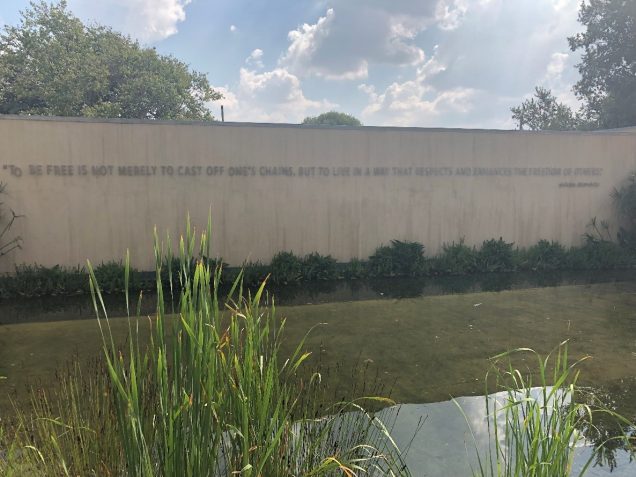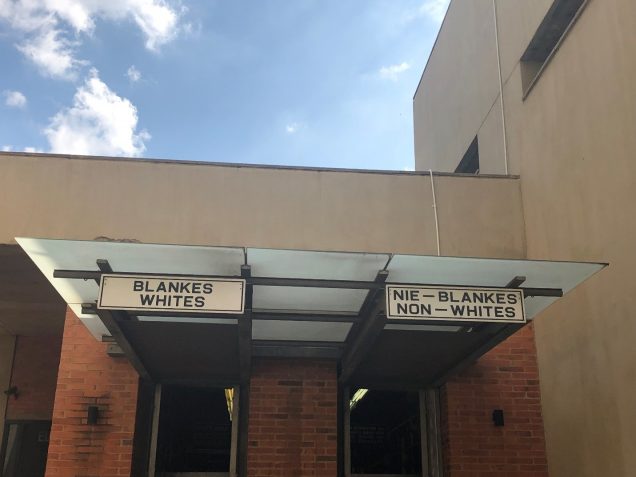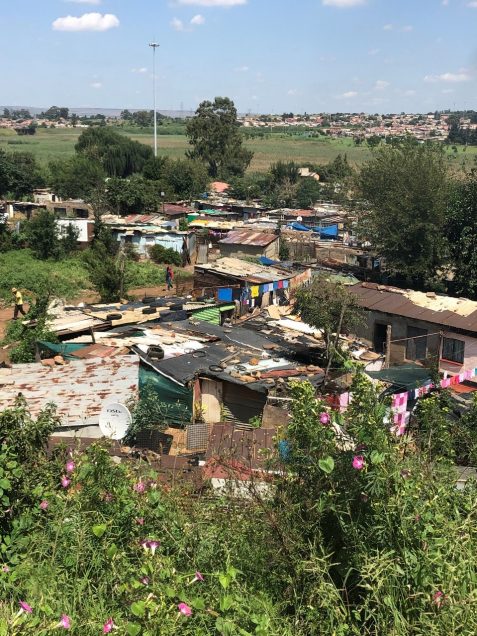In the words of Nelson Mandela, “To be free is not merely to cast off one’s chains”
By Stephanie
In the words of Nelson Mandela, “To be free is not merely to cast off one’s chains, but to live in a way that respects and enhances the freedom of others.”
I arrived home to Boston almost two weeks ago from our field seminar in South Africa. Our final spring quarter at Questrom has started and it is easy to get immersed into the busy schedule and routine of classes again. But I have tried to make a concerted effort to take the time to really reflect on my experiences in South Africa – whether that’s going through the many pictures I took or sharing stories with friends and family. I have had a lot of people ask about how the trip was and the first things that people tend to ask are “How beautiful was Cape Town?” and “How amazing was the safari experience?” While these were certainly fun moments of the trip, they do not come close to summarizing my full learning experience and the takeaways I left with. I have struggled with how to describe the experiences we encountered with poverty, wealth disparities, and perpetuated racism and give these topics the full justice they deserve. Ultimately, I think it is something that people need to experience personally in order to truly understand the complicated present-day South Africa, but sharing some pictures has helped me start this conversation with friends and family.
One picture that I took that has stood out to me (although a bit blurry) is of a large quote displayed outside of the Apartheid Museum. It is a quote from Nelson Mandela and it says “To be free is not merely to cast off one’s chains, but to live in a way that respects and enhances the freedom of others.”

I think this quote encapsulates the vision Nelson Mandela had for South Africa and is also a conversation-starter for the work that still needs to be done today. While yes, there are no longer physical chains in South Africa (in terms of the institutionalized racism during the Apartheid period), perpetuated wealth and race disparities, along with continued intentional and unintentional racism, inhibit large parts of the population of South Africa from living up to their full potential.

Taken at the Apartheid Museum. Representation of formal segregation seen during Apartheid.
Looking back at some pictures I took of neighborhoods such as Soweto, it is hard to buy the idea of “freedom of choice”, which we were repeatedly told on our tour is the feeling in South Africa today. I find it hard to believe that the majority of the people in these neighborhoods “choose” this life for themselves – rather it is the conditions and disparities of the current society that have chosen for them.

Neighborhood of Soweto, outside of Johannesburg
According to a survey conducted by the South Africa Institute for Race Relations, 60% of South Africans do believe that race relations have improved since 1994. While this number does sound promising it is important to also note that 16% believe things have stayed the same and an alarming 21% believe things have become worse. This makes me wonder…what portions of the population are reporting that things are better vs. worse and are there disparities here? Do impoverished black communities truly believe in “freedom of choice” today, or is this instilled by the same affluent white communities that look very much the same today as they did during Apartheid?
While reflecting on this situation is disheartening, I think it is very important that we were exposed to these sides of South Africa. Others who travel there on vacations may only experience the “Cape Town” and “Safari” sides of South Africa, but this does not tell the whole story. And for any improvements to prosper, both South Africans and stakeholders need to have these conversations and not hide behind fabricated falsehoods that everything is okay. On a promising note, we did visit one company during our seminar that is tackling these exact issues head on. Mandate Molefi is a consulting firm that works with leaders of businesses, organizations, and schools to drive culture change and build inclusive environments with the vision “to heal and free people to be their best” (which is very reminiscent of Mandela’s vision). The consulting firm works to dispel the intentional and unintentional biases that leaders perpetuate surrounding issues of race, sex, LGBTQ, and other aspects of diversity. I was so impressed by the work this company is undertaking and the tangible skills it is equipping leaders of today with in order to change mindsets and ultimately organizational/community cultures.
To me, this is what South Africa needs more of today. Companies and leaders like Mandate Molefi who are not afraid to acknowledge the stark realities of the landscape in South Africa and to work towards equipping all people with the conditions and environments they need to be truly free. Believing that everything is healed will not help anything – change will only result if these tough conversations are confronted head on.